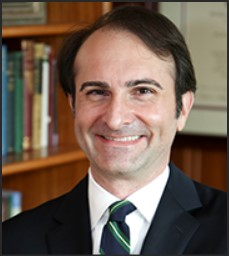by James A. Bacon
Excellent reporting by the Virginia Mercury’s Jim Morrison highlights the debate in Norfolk over the rising homicide rate since 2020. In this two-part series (here and here) he describes how the city’s “progressive” Commonwealth Attorney Ramin Fatehi, who campaigned on the premise that structural racism is the root cause of criminality, has become the focus of the controversy.
Fatehi has championed a panoply of policies to combat “explicit and implicit bias, mass incarceration, the school-to-prison pipeline, and the criminalization of poverty, homelessness, mental illness, and substance-use disorder.” In practice that has meant seeking cash bail less often and charging suspects with lesser crimes, often reducing felonies to misdemeanors.
Norfolk’s 2022 homicide total, 63, was the highest the city had seen since the mid-1990s. In 2021, there were 62 murders. From 2012 through 2019, the city suffered between 29 and 43 murders annually.
Fatehi, of course, blames outside factors such as economic insecurity, the flood of guns, and the COVID pandemic. The spike in homicides has occurred in many places, he says, not just in cities with progressive prosecutors.
It is difficult to disentangle the “root causes” of the increase in homicides because the surge coincided with three social/economic tidal waves: the COVID-19 pandemic, the George Floyd protests in 2020, and the economy’s increasingly acute labor shortage in multiple professions including law enforcement. Fatehi did not assume office until January 2022.
The Norfolk Police Department is more short-staffed than ever. Less publicized, the Commonwealth Attorney’s office has been afflicted by high turnover as well. According to the Virginia Mercury, 22 prosecutors left the office in the 18 months after Fatehi won the Democratic Party primary in June 2021. About two-thirds moved to prosecutors’ offices in Chesapeake, Suffolk, and Virginia Beach.
The Mercury’s Morrison is balanced in representing the perspectives of both Fatehi and his critics. Perhaps the most interesting observation does not fit into the “progressive” or “conservative” schools of commentary. Norfolk City Manager Larry “Chip” Filer contends that patterns of gun violence are changing.
Gun violence in the past, Filer said, was economic — drugs, burglary, robbery. Now, though, he said, “relational violence” seems to be the main driver. “Very rarely is our gun violence occurring between folks that don’t know each other,” he said.
“It took us quite a while to figure out what was happening, and particularly why it was happening,” Filer added. “One of the very first steps we took was to recognize that the violent crime, that particularly gun crime that we were seeing, was different than it had ever been in the city’s history. It was very personal. It was mostly between folks who knew each other, had a beef and were settling scores.”
Others observe that homicides have almost always occurred between people who knew each other — domestic violence, drunken brawls, disputes between rival gangs, and the like. True. But there is something different now. Many homicides arise from arguments on social media. Young men are shooting one another because they feel dis-respected. I think Filer is on to something.
Whatever the case, Morrison makes it clear that Norfolk police and city leaders aren’t buying what Fatehi has to sell. Voters still have two and a half years before they have to decide whether he is the solution to the problem — or part of the problem.



